UNCAC(United Nations Convention against Corruption )
The United Nations Convention against Corruption is the only legally binding universal anti-corruption instrument. The Convention's far-reaching approach and the mandatory character of many of its provisions make it a unique tool for developing a comprehensive response to a global problem. The Convention covers five main areas: preventive measures, criminalization and law enforcement, international cooperation, asset recovery, and technical assistance and information exchange.
Sri Lanka signed the Convention on 15 March 2004 and ratified it on 31 March 2004. It entered into force for Sri Lanka on 14 December 2005.
- 1st review cycle held -
Sri Lanka signed the Convention on 15 March 2004 and ratified it on 31 March 2004. It entered into force for Sri Lanka on 14 December 2005. The Self-Assessment check list of Sri Lanka was reviewed by China and Papua New Guinea for the implementation of Chapter iii – “Criminalization and Law Enforcement” and Chapter iv – “International Cooperation” of the United Nations Convention against Corruption for the first review cycle held in 2012 -2013.A country visit was conducted in Colombo, Sri Lanka from 3-5 July 2013. - UNCAC Review follow up meeting was held in Colombo, Sri Lanka from 30 June – 1 July 2016. The first cycle Country Review Report of Sri Lanka published in the UNODC website.
- Its observations
- Sri Lanka has not criminalized the bribery of foreign public officials and officials of public international organizations. However, the possibility of the adoption of relevant measures is currently being discussed.
- Sri Lanka legislation does not expressly criminalize trading of influence, although some sections of the Bribery Act (Sec 17 &19)covering certain elements of that offence.
- Sri Lanka did not criminalize bribery in the private sector, although some provisions of the Bribery Act (sec 18 on bribery among bidders for government tenders) touch upon certain aspect of bribery in the private sector.
- Sri Lanka has not criminalized the bribery of foreign public officials and officials of public international organizations. However, the possibility of the adoption of relevant measures is currently being discussed.
- Implementation
We identified our gaps in the first review cycle and we take steps to overlook those gapes.- Incorporated witness protection Act and Right to Information Act. Under Witness protection Act, the reporting person is protected from unfair treatment.
- Article 156 of the 19th amendment to the Constitution of the Republic duly recognize UNCAC and other international convention which Sri Lanka is a party. Sri Lanka is the only nation constitutionally recognize the UNCAC.
- Incorporated witness protection Act and Right to Information Act. Under Witness protection Act, the reporting person is protected from unfair treatment.
- 2nd review cycle held –
Sri Lanka voluntary agreed for the review mechanism in the first year of the second cycle among the 29 countries. Accordingly, self-assessment check list of Sri Lanka was reviewed by Palau and Brunei Darussalam for the implementation of Chapter ii - :Preventive measurers” and Chapter v “Asset Recovery” and the country visit was concluded in Colombo, Sri Lanka from 29-31 March 2017.Now we are waiting to see the second cycle report in the UNODC website. - Implementation of the Observations
- Planning to establish Prevention Unit in the CIABOC. The Government is approved the cadre to recruit graduates as prevention officers. A workshop is scheduled to hold in Colombo on 4th of July 2017 to prepare work plan of the Prevention unit andthe Experts Investigations Unit. The public officers, private sector officers and civil society members will be participated.
- Planning to establish Prevention Unit in the CIABOC. The Government is approved the cadre to recruit graduates as prevention officers. A workshop is scheduled to hold in Colombo on 4th of July 2017 to prepare work plan of the Prevention unit andthe Experts Investigations Unit. The public officers, private sector officers and civil society members will be participated.
- Reviewing Botswana
Sri Lanka is a party to review first year of the second cycle of Botswana. The desk reviewed has been completed by the Sri Lanka on 26.05.2017. Now we are planning to country visit to Botswana due course.








